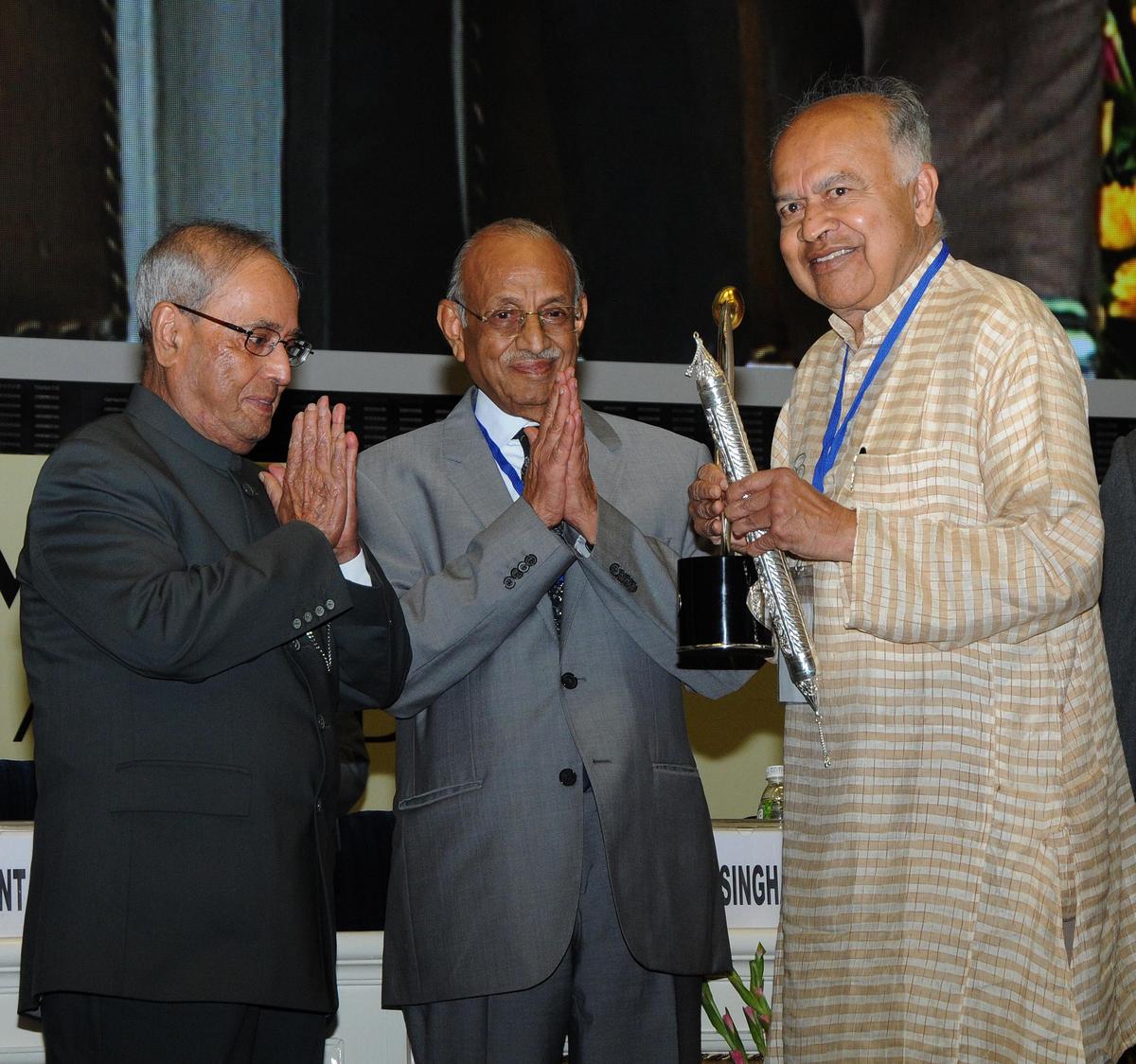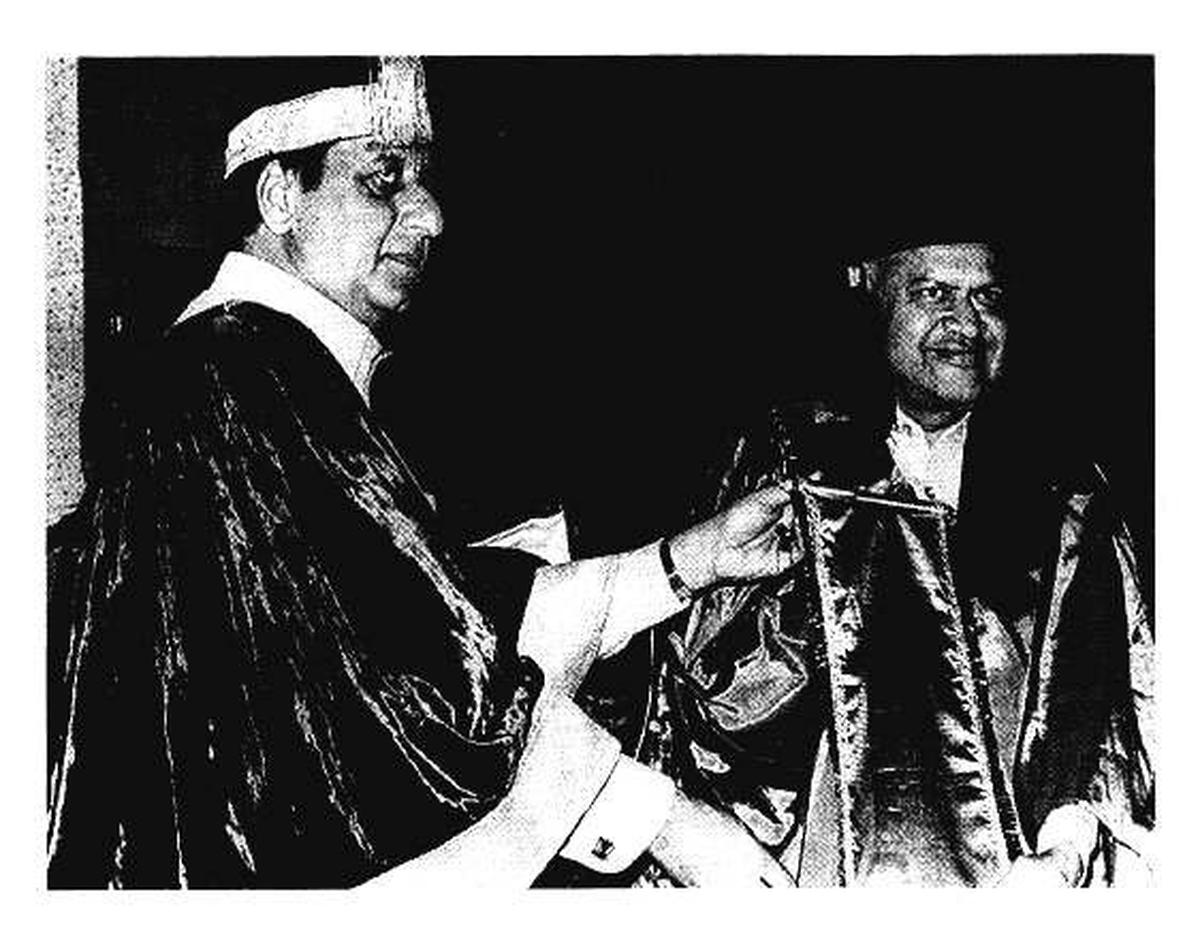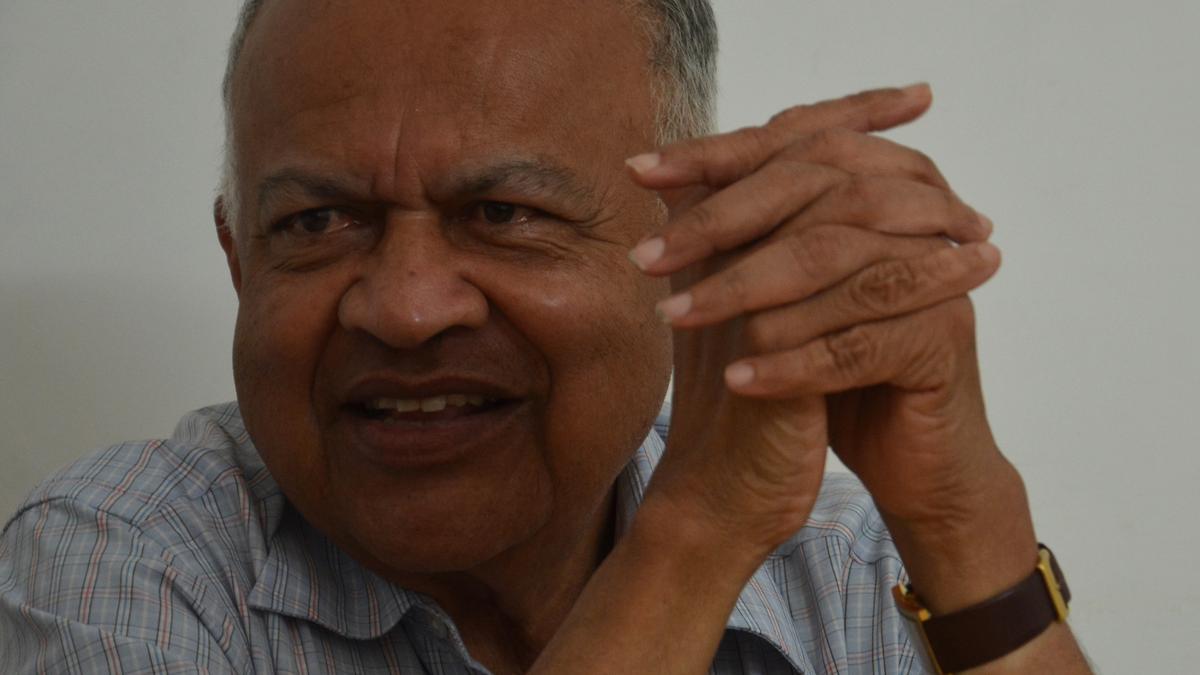Renowned astrophysicist Jayant Vishnu Narlikar
| Photo Credit: Thulasi Kakkat
Dr. Jayant Narlikar, one of India’s most distinguished astrophysicists who combined profound theoretical insight into cosmology with a lifelong commitment to science communication, passed away at his residence in Pune on Tuesday (May 20. 2025). He was 86.
Describing what made Dr. Narlikar one of the “greats”, Dr. Tarun Souradeep, Director of the Raman Research Institute (RRI), Bengaluru, told The Hindu that it was his “sense of justice and equality,” and his “unwavering commitment” to popularising science and combating “non-science-based superstition and astrology,” that set him apart.
As a gifted institution-builder, Dr. Narlikar played a pioneering role in establishing the Inter-University Centre for Astronomy and Astrophysics (IUCAA), Pune, where he served as Founder-Director. Under his stewardship, IUCAA emerged as a globally recognised centre for theoretical physics, cosmology, and astrophysics.
“He spawned a number of leading scientists who set new directions and schools: Thanu Padmanabhan (Cosmology, Gravitation and Quantum Gravity); Sanjeev Dhurandhar (Gravitational Waves); Ajit Kembhavi (Data-driven observational astronomy), to name a few,” Dr. Souradeep, who completed his doctoral research under Dr. Narlikar’s guidance, said.
A prolific writer and science populariser, Dr. Narlikar once recalled in a blog post “playing table tennis with Stephen Hawking (prior to his muscular atrophy)” when they were both students at the University of Cambridge.

The then President Pranab Mukherjee presents the Lakshmipat Singhania-IIM, Lucknow National Leadership Award to Jayant Visnu Narlikar. File photo
| Photo Credit:
Shanker Chakravarty
Dr. Narlikar first gained international recognition when, alongside the British astronomer Sir Fred Hoyle, he proposed the ‘steady state’ model of the universe – a theory positing a timeless cosmos in which matter is continuously created. This stood in contrast to the dominant ‘Big Bang’ model, a term ironically coined by Hoyle to disparage it, which posits that the universe began at a single point in time.
Although subsequent observational evidence has since firmly supported the Big Bang theory, Dr. Narlikar remained a persistent and vocal critic of it, adapting and refining the steady state view throughout his career.
“He wore his remarkable learning in various disciplines very lightly and he combined to an unusual degree formidable scholarship with humility. He was well and truly a most luminous star of Indian science, who reflected the noblest of our civilisational traditions,” Congress communications in-charge and Rajya Sabha MP Jairam Ramesh tweeted. He also shared an excerpt from the 1964 edition of Yojana – a Planning Commission publication – which debated whether India should lure the young Narlikar back from Cambridge.
In a rare feat, Dr. Narlikar was awarded the Padma Bhushan in 1965, even before formally beginning his career in India at the Tata Institute of Fundamental Research (TIFR), Mumbai. He later received the Padma Vibhushan in 2004.
Among his many accolades were the UNESCO Kalinga Prize for the popularisation of science in 1996 and the prestigious Prix Jules Janssen from the French Astronomical Society in 2004.
Dr. Narlikar was also widely admired for his literary contributions. His science-fiction story Dhoomaketu (The Comet) was adapted into a film, while his autobiography Chaar Nagarantale Maze Vishwa (My Tale of Four Cities) was awarded the Sahitya Akademi Prize. His writing – marked by clarity, an avoidance of jargon, and philosophical depth – explored themes ranging from alien encounters to the moral quandaries arising from rapid technological progress.

The Vice-Chancellor of Benaras Hindu University, prof. Hari Gautam (left) presenting an hononory degree of Doctor of sciences to Prof. Jayant Vishnu Narlikar, at the seventh convention of the BHU science faculty in Varanasi.
| Photo Credit:
The Hindu Archives
He was frequently featured in science programmes on television in the 1990s and credited Carl Sagan’s outreach work, as well as the fiction of Sir Hoyle, Isaac Asimov, Arthur C. Clarke, and Ray Bradbury, as key influences in his approach to communicating science.
Born to eminent parents – Vishnu Vasudev Narlikar, a mathematician at Benares Hindu University (now IIT-BHU), and Sumati Narlikar, a Sanskrit scholar – Dr. Narlikar received his early education in Varanasi before moving to the University of Cambridge, where he completed his Ph.D. under Sir Hoyle’s mentorship.
Published – May 20, 2025 03:41 pm IST
